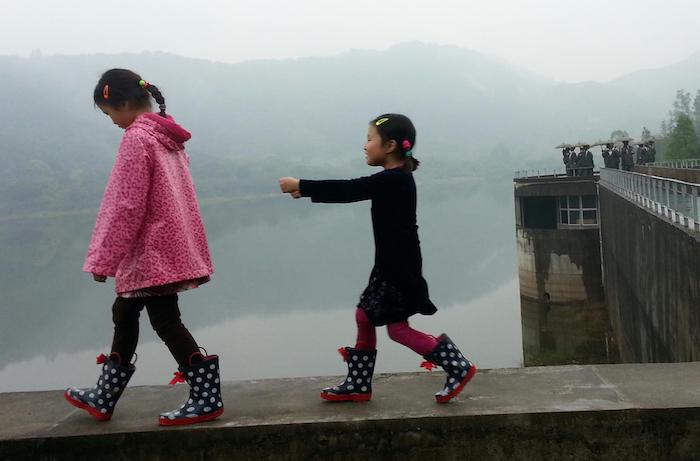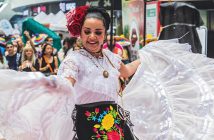Fourteen years ago, I stopped being an only child.
My parents must have misunderstood. When I asked for a sister, I meant a BIG sister, not this… wrinkly little thing they call a baby.
I wanted a big sister because I wanted someone who’d play with me, someone who’d protect me and teach me the ways of life. All a little sister does is make me a big sister. I went from being the center of attention to sharing my life with a mini human I was expected to adore and get along with.
Scarier than that, I was supposed to become the responsible sister and role model. All eyes were on me. And I was only two years old!
As humans, we’re obsessed with categorizing everything. We tend to put people into boxes, whether or not they actually fit. It’s easy to project yourself into certain traits if society expects them of you. What child hasn’t heard adults bragging about their “responsible oldest daughter” or “trouble-making” little ones”?
In Chinese, you’re either a jiejie or a meimei – an older sister or a younger sister. In English, there’s no such difference. You are sisters either way. But in Chinese culture, even twins, born only seconds apart, are often subjected to these expectations. You see them on their parents’ social media posts, referred to as jiejie and meimei – translation: the responsible older one and anything-goes little one.

“When I asked for a sister, I meant a BIG sister, not this…”
Throughout my early childhood, I was the perfect jiejie. My little sister was the reason I would always ask for extra cake and candy during class birthday parties. Not because I was greedy, but because I had to save it for my meimei. Everything I talked about included my sister. When my favorite teacher in second grade told us she was leaving, my immediate response was “oh no, you won’t teach my sister!”
My sister and I were inseparable, we never fought, and all the grownups praised me for being a good big sister.
But after I discovered chapter books, we stopped playing together as much. All I ever wanted to do was read. While I hid from the real world through fiction, my sister seemed to move on beyond me until it felt like I had nothing left to offer her. She even took on the role of the stereotypical responsible “older” sister.
We lost that easy communication and started butting heads. In the blink of an eye, she was all grown up. She stopped blindly following me anywhere and looking at me with that light in her eyes.
On a deeper level, the tension between us has always been over something we had no control over: the stereotypes and expectations based off nothing more than birth order. As soon as we stopped fitting into those boxes, I was no longer a good big sister.

“Throughout my early childhood, I was the perfect jiejie.”
Because when the question of “how can I be a better big sister” comes up, you’re really asking how can you get along with your younger siblings and get them to admire you the same way they did when you were young children. In other words, how can you force your way back into those boxes that say, “good sister”?
But there is more than one right way to be a good big sister.
It’s the reason why so many grown siblings keep telling you it gets better when you’re older. They say you’ll one day be each other’s best friends, but they don’t tell you why.
I think being a good big sister means being a good sister first. And being a good sister isn’t just about being a role model or showing your sister the secrets of life. To be a good sister is to understand that you are equals and can learn from each other. It’s about learning to lean on each other and facing the world together.
None of us will be children forever. It’s taken me a while to understand that we’ll never be able to go back to the way we were before. But that’s okay. My sister may be younger than me, but she is just as capable. She won’t need my help forever. In fact, these days it’s her teaching me internet lingo and how to “meme”.
Since the start of quarantine, we’ve spent a lot more time together playing and laughing, just like we did when we were little kids. We work together in silence for hours and coming up with stories late into the night. Yes, we still fight, but we understand that’s just part of what it means to be sisters.

“I think being a good big sister means being a good sister first.”
If you were to ask me how to be a good big sister, I’d have no answer. I am by far not a perfect jiejie. Sometimes I can be scatterbrained and childish. I don’t have much advice on being a teenager, never mind the secrets to the universe. But none of that matters.
I only have two years before I leave for college. I intend to spend them with my sister, as friends and as equals. And that makes me a pretty darn good jiejie.
KEEP READING: The Impact of Birth Order on Parenting Styles and Children’s Personalities
Images: courtesy of TianTian Xu




